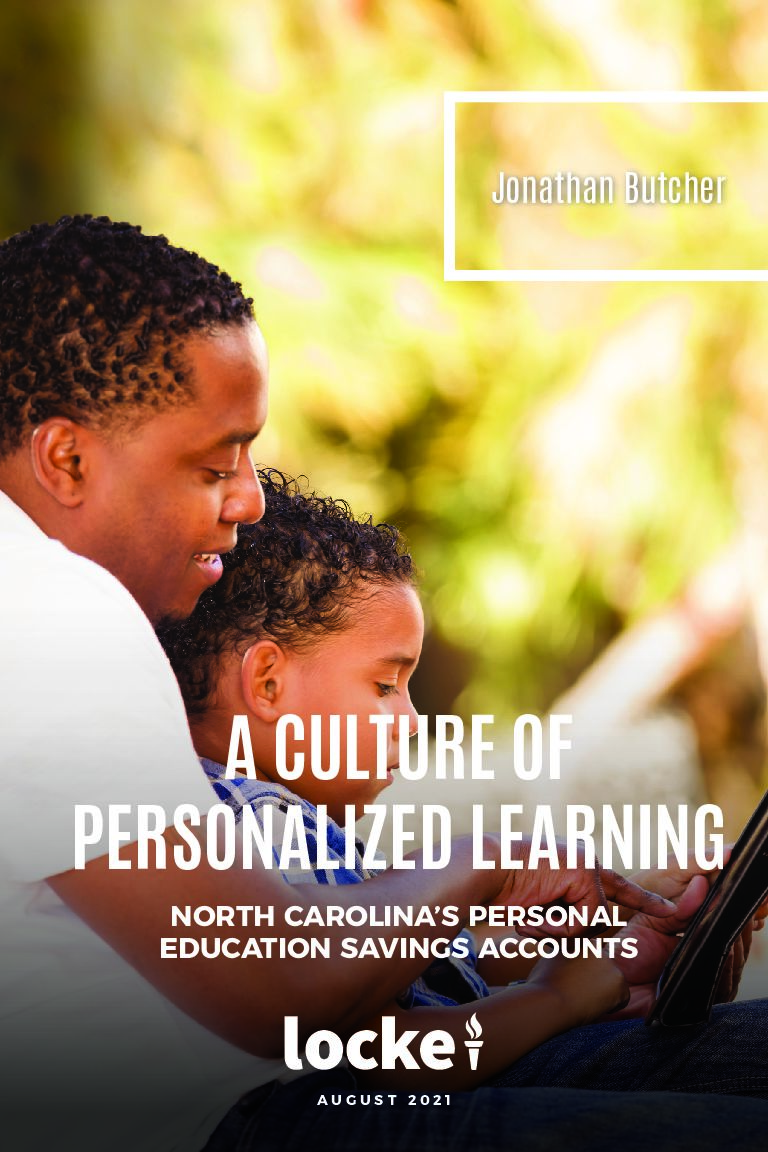In 2017, North Carolina lawmakers made their state the sixth to enact education savings accounts since 2011, following the design pioneered in Arizona. With an account, the state deposits a portion of a child’s K-12 education spending from the state formula in a private account that parents use to buy education products and services.
This study of parent spending patterns in the first two academic years of North Carolina’s education savings accounts (called Personal Education Savings Accounts) is the first to describe account holder spending in North Carolina and compare the spending to education savings account participation in other states.
The most significant finding from this report is that more account holders (64%) are using their child’s account to make multiple purchases of different items and services than account holders using their accounts to pay for only one item or service. This figure is significantly greater than in any previous studies of education savings accounts, but account holders’ access to additional grants for private K-12 learning expenses may affect participating families’ spending patterns.



